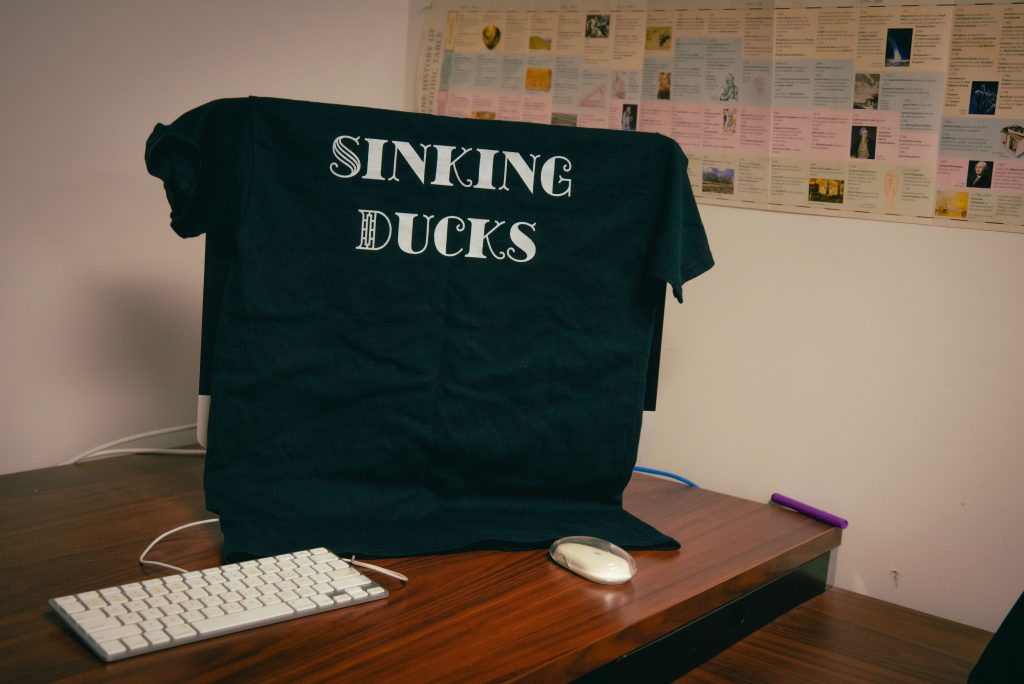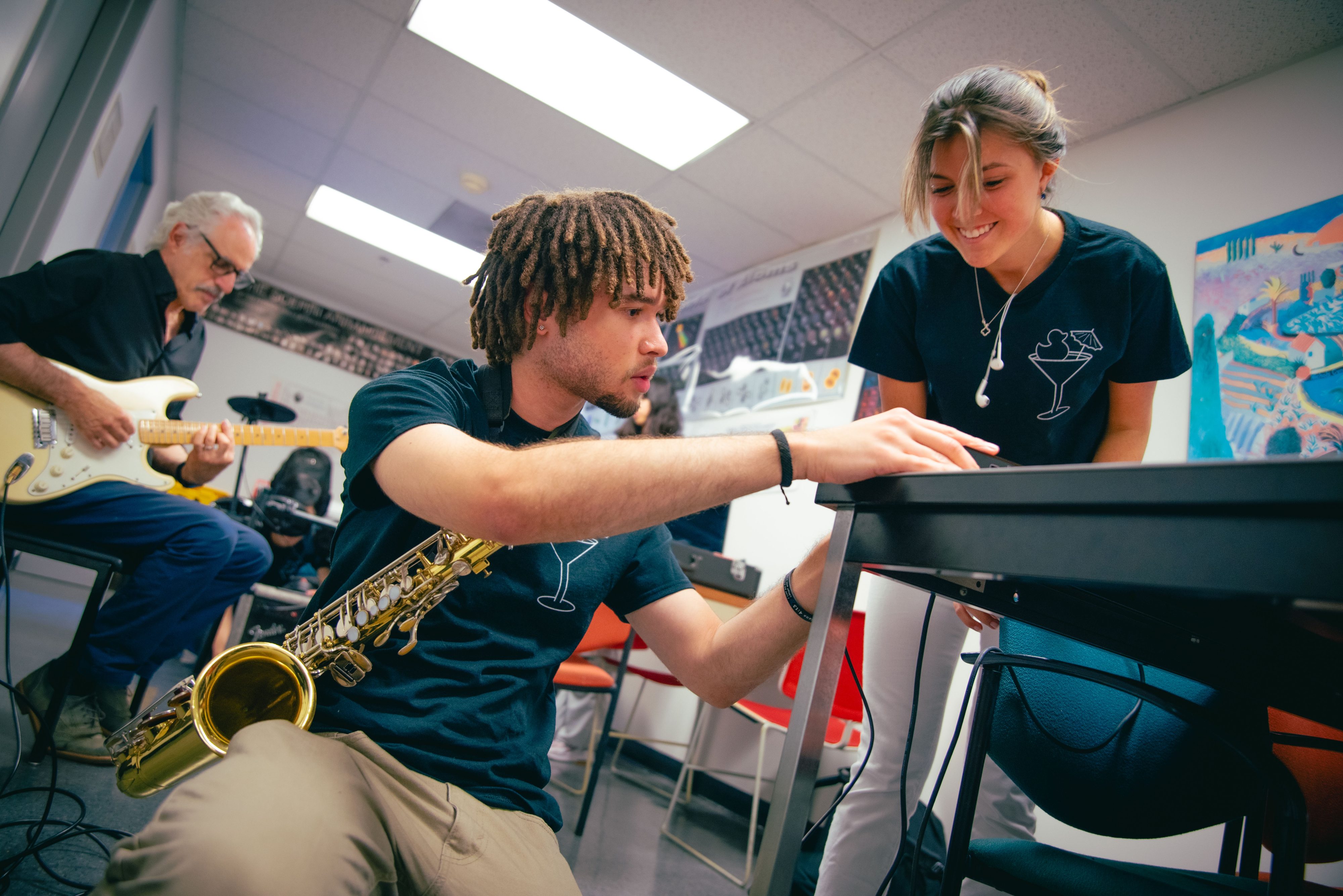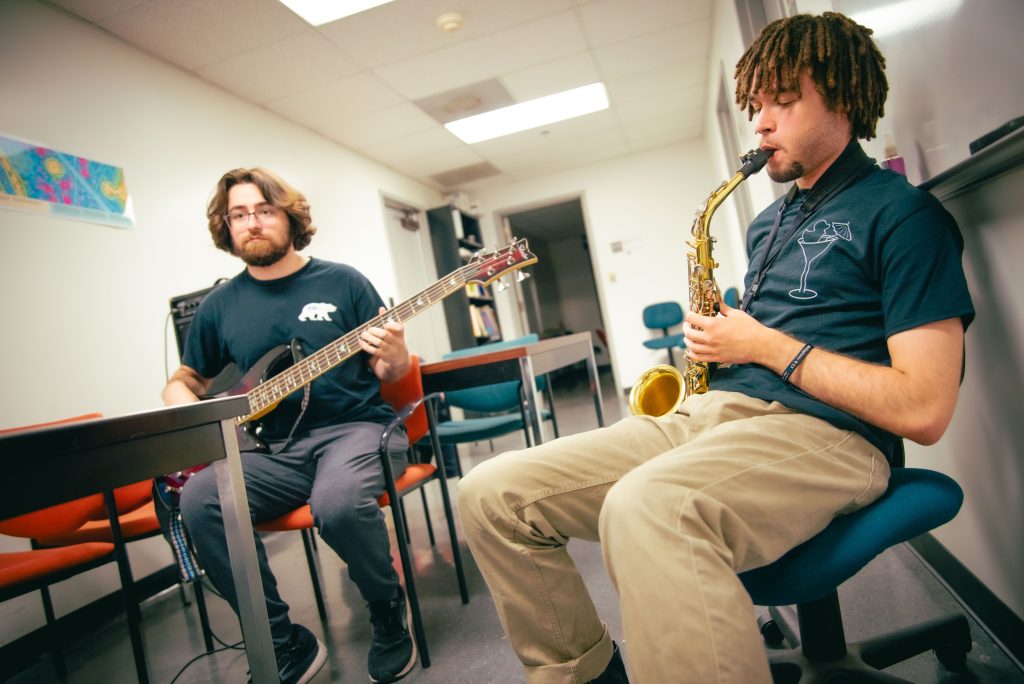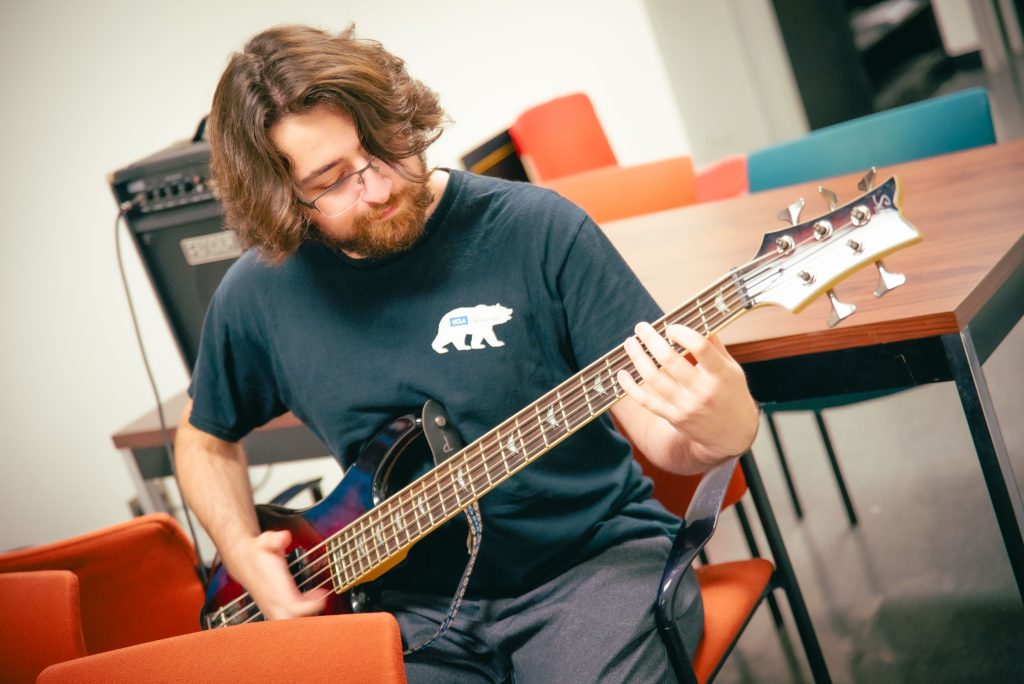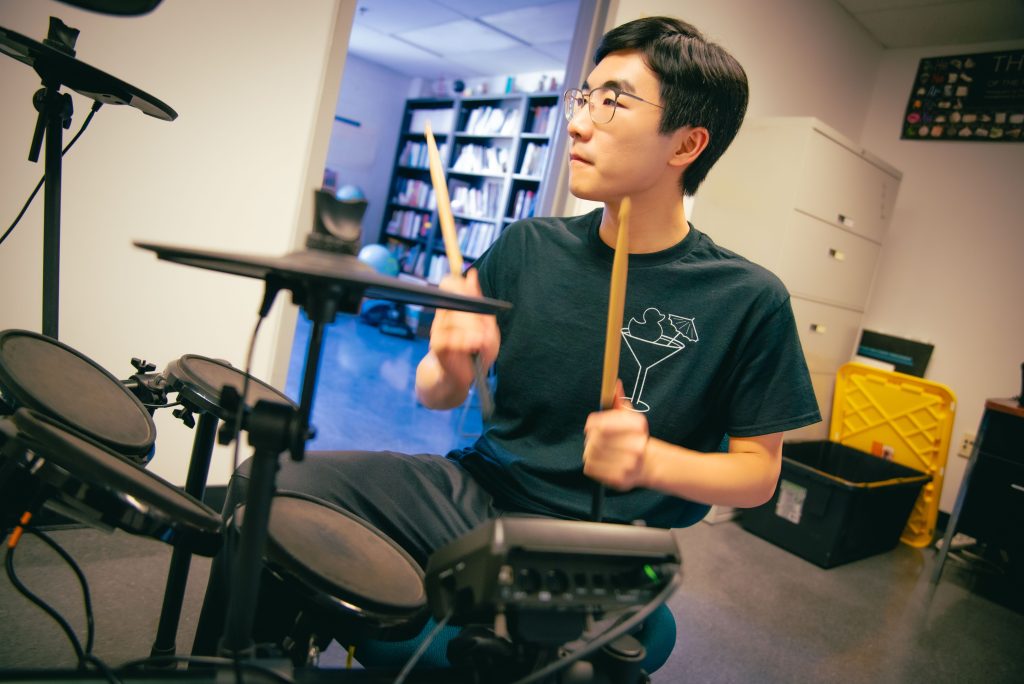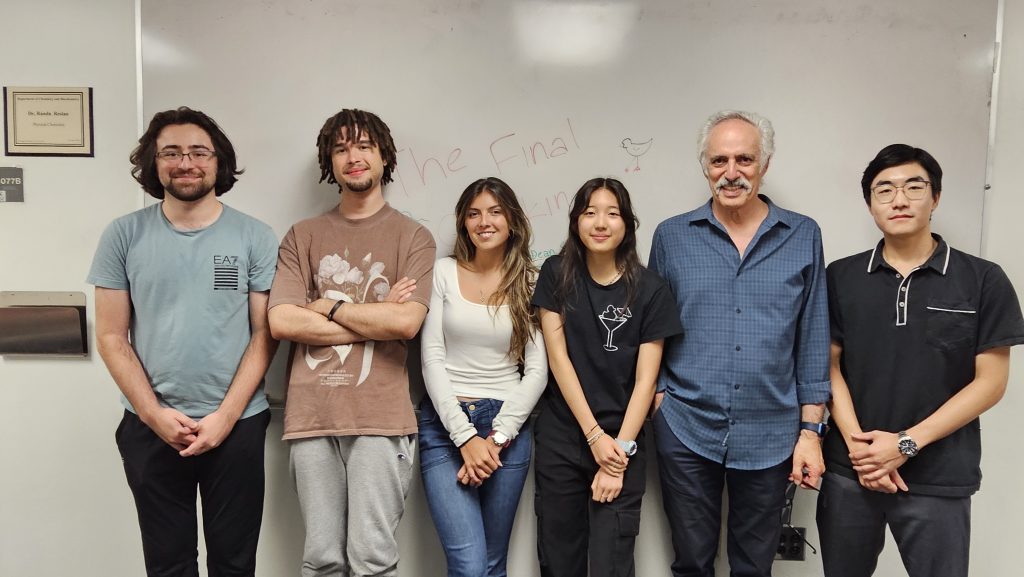W.G. Young Hall is home to many things, but of all things, a rock, blues and funk student band might not be what you’d first expect. On Friday evenings, once classes have begun to let out for the day, a wandering passerby might hear the amped, swinging sounds of Dr. Eric Scerri’s office hours band, the Sinking Ducks. Should our passerby choose to follow these riffing harmonies of guitar riffs, drum beats, and vocals, they will be led through a maze of chemistry labs and classrooms to a small corner office tucked on the fourth floor of the building where the band regularly meets to jam.
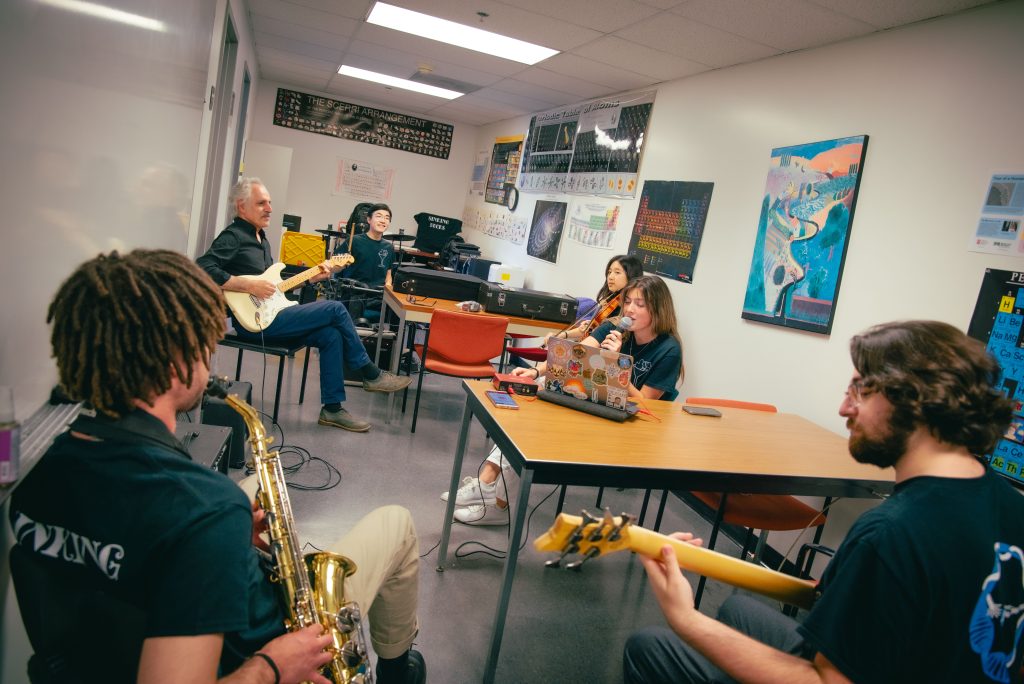
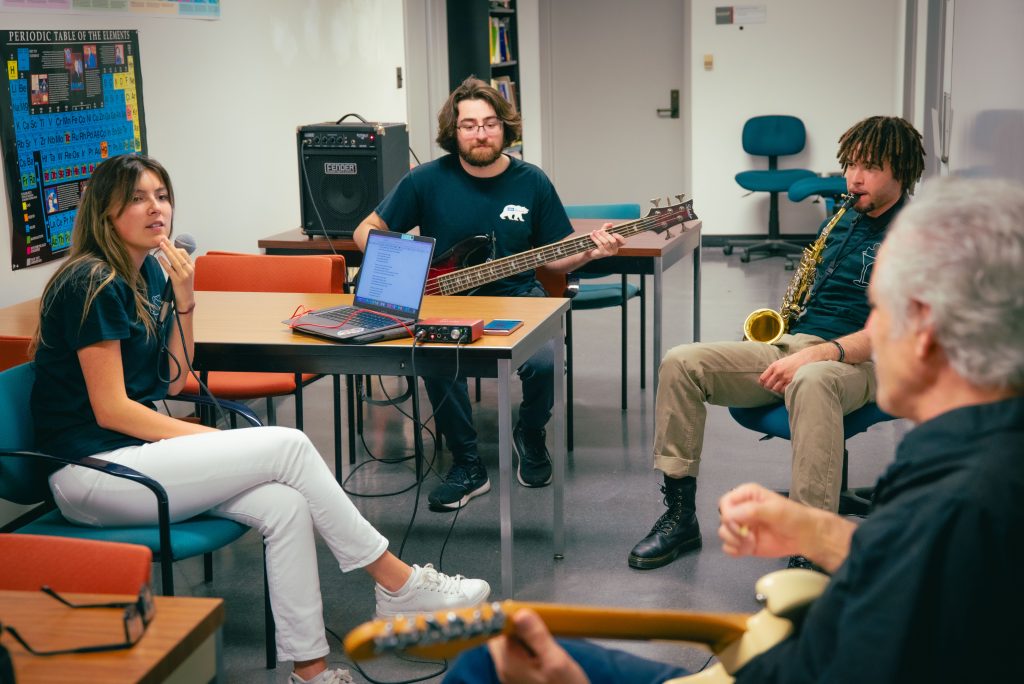
The story of the Sinking Ducks began three years ago and revolves around chemistry professor Dr. Eric Scerri, the “band’s glue,” per Justin Choo, the group’s drummer and a graduating Environmental Science major. Known to most as the professor of the gauntlet Chemistry 14A and 14B series, Dr. Scerri is a little lesser known for his blues centered guitar playing. His love for the genre – one marked by its sharp guitar riffs, swinging pentatonic rhythms, and its howling vocals – stems from the music’s influence in most all the music we listen to today. In the good Doctor’s words: “The blues is the trunk, the basis for all modern music, be it funk or rock or jazz.” So, seeking to pay homage to the genre and the original Mississippi Delta musicians, Dr. Scerri made the announcement that would found the Young Hall band.
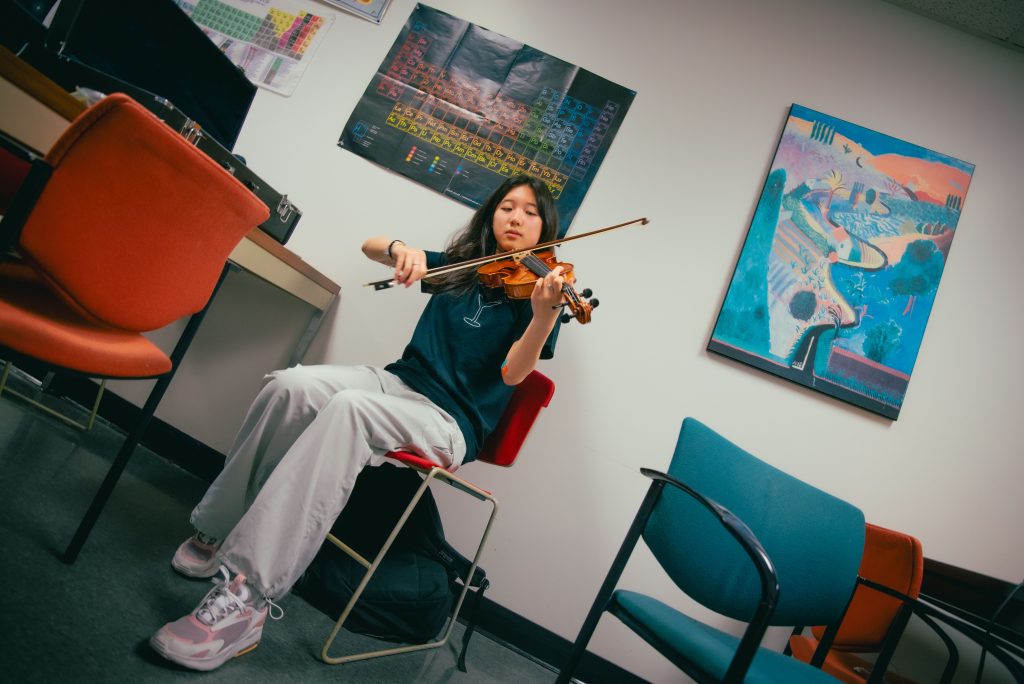
Sitting in lecture for chemistry 14B, Jonah Nahoul, the band’s bassist and a third year MCDB major, listened as the professor “off-handedly mentioned, in his wonderfully British accent, that he played guitar – and [here] I think he was trying to cast the net – and he was like does anybody play any instruments here?” So, I was like, yeah, I play bass, so [that] Friday we had a little jam session.” The year before, Choo, heard the same call to action. In a lecture of some 350 people, “Stafford,” the band’s saxophonist and a Neuroscience major, “and I were one of the only two students who took him seriously and we went to his office hours and the rest was history.”
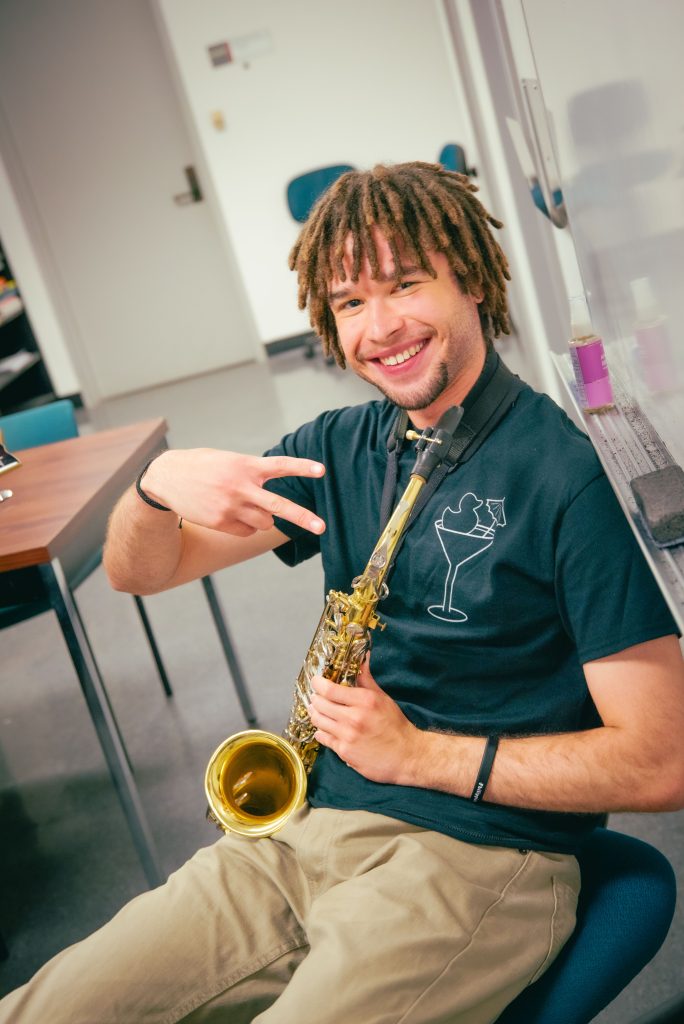
Coming into the Sinking Ducks to play the blues was a first for many, as the musical keys and rhythms of the genre are particular enough that it takes time for non-accustomed musicians to adapt to its grooves. Through the mentorship of Dr. Scerri, the transition came quickly and a community centered around the music soon formed. He explains how the “main thing I want to do is to instill that groove into them, to really play on the beat. So, we tend to jam on very simple tunes, three chords basically, as blues is essentially three chords, and just concentrate on playing together, tight, in the pocket.” Once together, reaching that harmony and playing tightly in the pocket, the tiny, chemistry-postered office space resounds with life, jumping to the notes of original Delta blues musicians like B.B. King and “The Thrill is Gone” or later bands inspired by their achievements like the Beatles and “The Ballad of John and Yoko.”
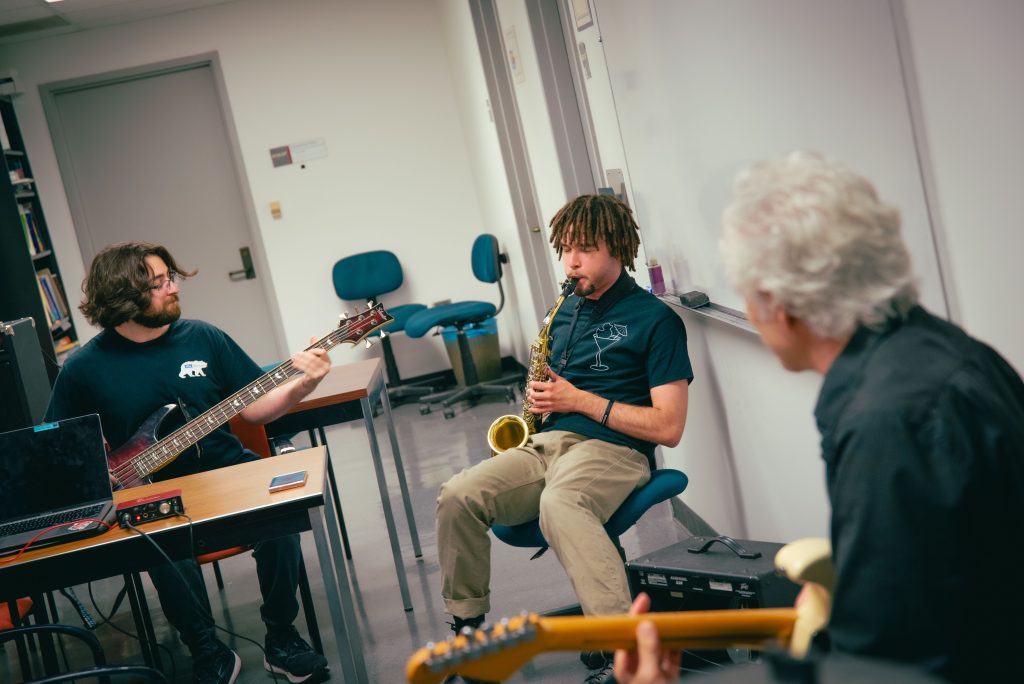
Many of the students assembled in the band have improved musically over the past few years, some breaking free from the moldings of their classical music educations and others stepping down from higher tempos into the more melancholic progressions of the blues; yet the community that has formed is the first thing to come to mind as the musicians reflect on their time with the Sinking Ducks. To Choo, the band came as a respite from the hectic demands of college life: “I didn’t really do anything social in college, it was just work. And because I was graduating early I had to pack in a lot of my classes and a lot of extracurricular work into those three years, and this was the one thing I could do to destress; it was the one thing that kept me sane.” To Nahoul, the jam sessions also offered a place to destress, and possibly also a miracle: “One jam session was the day before my organic chemistry final, [and] I really felt [the stress], but it was really nice to get all that stress out and I ended up really doing well on that final. I don’t know if those two things were correlated but I like to think they were.”
